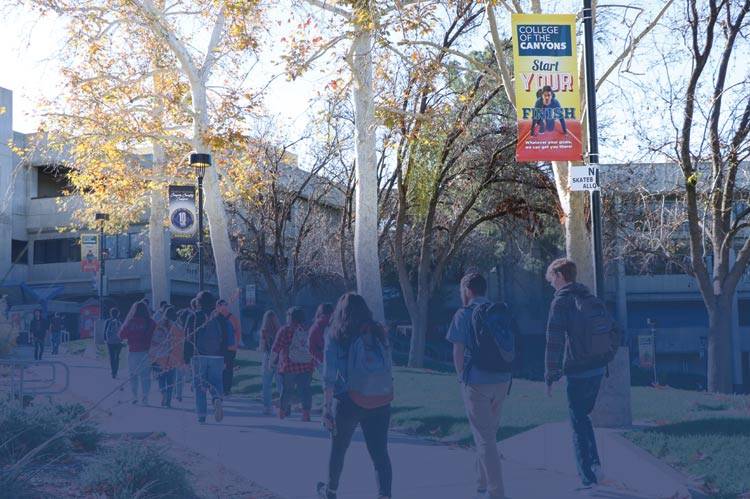Historical Information on the Work for Developing and Assessing SLOs for Institutional-Level Programs
2008
In 2008, the SLO steering committee developed a first round of institutional-level SLOs for degrees, certificates, transfer, personal development and job skills based on ICETC/CSUGE.
This process included defining the SLOs, mapping the SLOs to courses, defining the assessments, assessing the SLOs, and analyzing the results. The committee decided to focus on common educational goals and develop the SLOs according to the GE categories for transfer and degree seeking students. A workshop was held on April 4, 2008 with administrators and faculty representing the appropriate departments, to create the SLOs and develop assessments for the respective SLOs. Institutional SLOs were created for the following areas:
English Communication (IGETC/CSUGE),
Mathematical Concepts and Quantitative Reasoning (IGETC/CSUGE),
Arts and Humanities (IGETC/CSUGE),
Social and Behavioral Sciences (IGETC/CSUGE),
Physical and Biological Sciences (IGETC/CSUGE),
Languages other than English (IGETC), and Lifelong Understanding and Self-Development (CSUGE).
Since the April 4, 2008 workshop there has been a shift in thinking regarding Institutional-level SLOs, resulting in the decision to base them on Associate Degree Requirements, plus College Skills and CTE. Many of the SLOs developed by the participants in the original workshop remain valid. More collaboration will be necessary to develop SLOs for some new categories and to revise some of the older SLOs that don't work for the new categories.
2009-2010
The new categories, based on the G.E. areas defined in the Associate Degree Requirements 2009-2010 are: General Education The areas below comprise a total of 14 Institutional Student Learning Objectives (ISLO's):
Language and Rationality: English Composition
Language and Rationality: Communication and Analytical Thinking
Physical Education and Wellness
Fall 2010
Career Technical Education (CTE) College Skills For all of areas, interdisciplinary groups met to draft ISLOs on "Opening Day Fall 2010," created an assessment plan, and agreed on an assessment schedule. The groups went through a very similar process to the one used to develop departmental level program SLOs. The only difference is that these institutional-level programs are much larger and involve the collaboration of multiple departments.
2010-2012
Over the course of 2 years (Fall 2010-Fall 2012), the college assessed the 14 ISLO's through a combination of direct assessment and mapping of course level assessment results. Results were discussed in department and division meetings and flex workshops in fall 2011, spring 2012 and fall 2012.
Fall 2012 and Spring 2013
In fall 2012, a flex workshop was held to discuss the ISLO process, make adjustments as needed, and continue with the ISLO assessment process.
Below is a report from that meeting:
The CLOSING THE LOOP WORKSHEET is used in department and division meetings and flex workshops to facilitate discussion concerning ISLO results.
ISLO UPDATE (8/16/2013) Fall 2012 and Spring 2013
Discussions were held during FLEX workshops to discuss faculty experiences with ISLO assessment in 2010-2012 and the future of ISLO assessment. The attendees at the spring flex session were presented with 3 options for future ISLO assessment:
1. Continue with current process using IGETC model.
2. Create Core Competencie
3. Adopt LEAP outcomes
August 2013
FLEX Workshops on LEAP OUTCOMES The majority of participants expressed significant interest in the LEAP outcomes. A workshop took place Monday, August 19 2013 to discuss the benefits of adopting this model for ISLO assessment. LEAP (Liberal Education and America's Promise) Outcomes & Materials:
LEAP Website (website)

